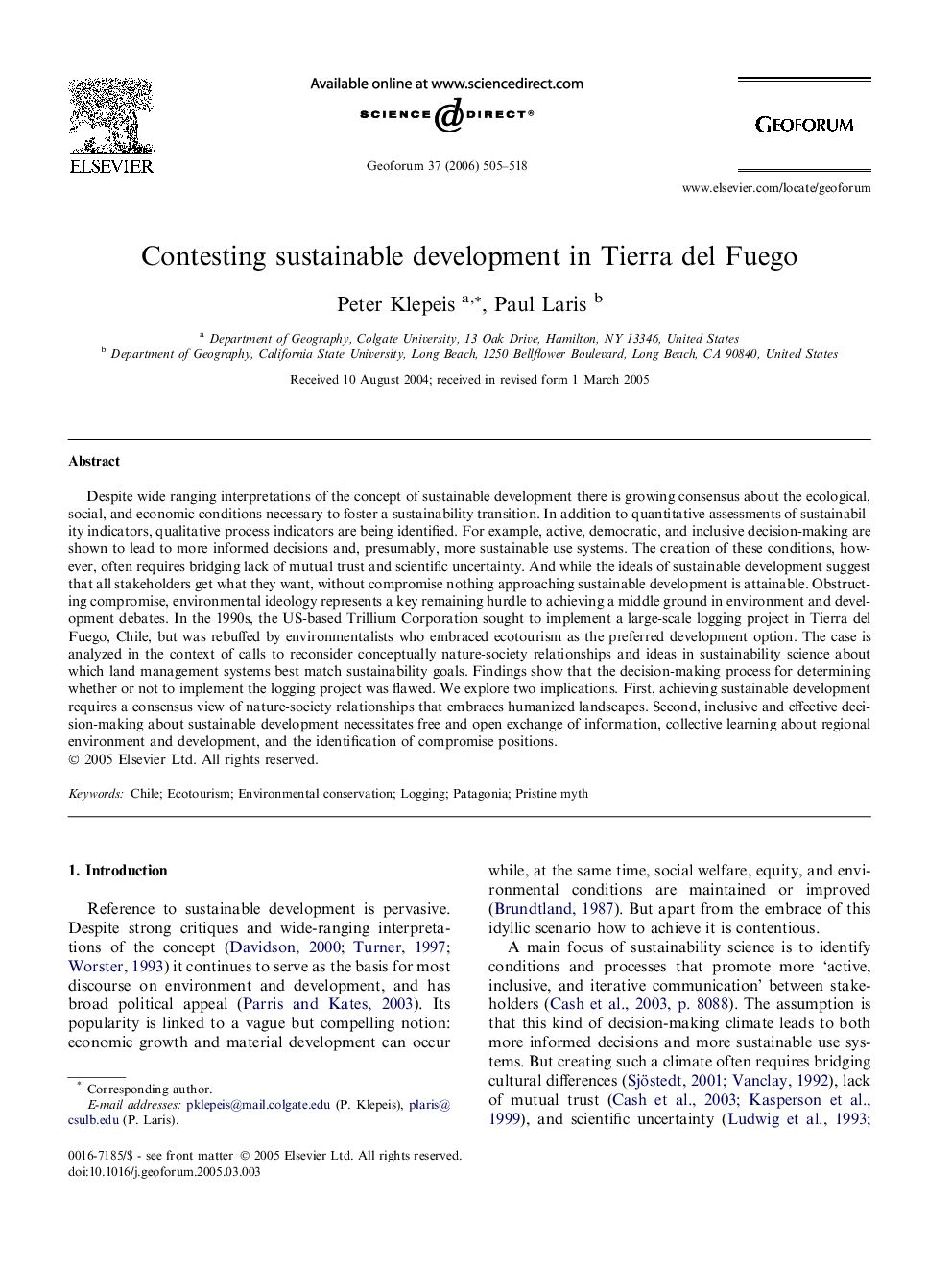| کد مقاله | کد نشریه | سال انتشار | مقاله انگلیسی | نسخه تمام متن |
|---|---|---|---|---|
| 5075149 | 1373732 | 2006 | 14 صفحه PDF | دانلود رایگان |
عنوان انگلیسی مقاله ISI
Contesting sustainable development in Tierra del Fuego
دانلود مقاله + سفارش ترجمه
دانلود مقاله ISI انگلیسی
رایگان برای ایرانیان
کلمات کلیدی
موضوعات مرتبط
علوم انسانی و اجتماعی
اقتصاد، اقتصادسنجی و امور مالی
اقتصاد و اقتصادسنجی
پیش نمایش صفحه اول مقاله

چکیده انگلیسی
Despite wide ranging interpretations of the concept of sustainable development there is growing consensus about the ecological, social, and economic conditions necessary to foster a sustainability transition. In addition to quantitative assessments of sustainability indicators, qualitative process indicators are being identified. For example, active, democratic, and inclusive decision-making are shown to lead to more informed decisions and, presumably, more sustainable use systems. The creation of these conditions, however, often requires bridging lack of mutual trust and scientific uncertainty. And while the ideals of sustainable development suggest that all stakeholders get what they want, without compromise nothing approaching sustainable development is attainable. Obstructing compromise, environmental ideology represents a key remaining hurdle to achieving a middle ground in environment and development debates. In the 1990s, the US-based Trillium Corporation sought to implement a large-scale logging project in Tierra del Fuego, Chile, but was rebuffed by environmentalists who embraced ecotourism as the preferred development option. The case is analyzed in the context of calls to reconsider conceptually nature-society relationships and ideas in sustainability science about which land management systems best match sustainability goals. Findings show that the decision-making process for determining whether or not to implement the logging project was flawed. We explore two implications. First, achieving sustainable development requires a consensus view of nature-society relationships that embraces humanized landscapes. Second, inclusive and effective decision-making about sustainable development necessitates free and open exchange of information, collective learning about regional environment and development, and the identification of compromise positions.
ناشر
Database: Elsevier - ScienceDirect (ساینس دایرکت)
Journal: Geoforum - Volume 37, Issue 4, July 2006, Pages 505-518
Journal: Geoforum - Volume 37, Issue 4, July 2006, Pages 505-518
نویسندگان
Peter Klepeis, Paul Laris,